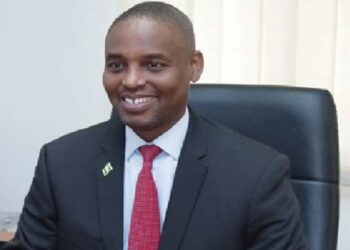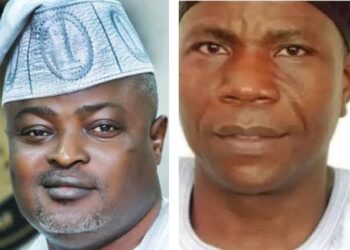Former Governor of Ogun State and current Senator, Otunba Engr. Olugbenga Daniel has underscored the necessity for government subsidies in the power sector following the removal of petrol subsidies.
He proposed that effective management and strategic support are essential to stimulate economic growth and enhance Nigeria’s infrastructure.
Daniel emphasized the importance of government involvement in supporting public goods, drawing comparisons to the Chinese model of economic diplomacy.

He explained that many Chinese companies, which have made significant inroads into African markets, benefit from substantial government ownership and support. This model, Daniel suggested, could offer valuable lessons for Nigeria as it seeks to revitalize its power sector and the broader economy.
“Let’s look at the Chinese model. When the Chinese finally decided to open up and all these companies flooded Africa, what many people don’t know is that even those companies that claimed to be privately owned, there is virtually none of them that is not the government that has majority shares. They let them do the business but the government is the owner of majority shares. I’m not so sure anyone is running without the government having about 51% shares. So, they opened up but it is guided by economic diplomacy and they are there to help those companies. That is why it’s not difficult for many of those companies to enter into a market that otherwise belonged to Western Europe and the US because of that support,” he said.
Reflecting on his tenure as Governor, Daniel reiterated his belief that while the government should not run businesses, it has a critical role in facilitating and supporting private enterprise.
“In fact, what I said when I was Governor was that yes, the government has no business in business, but the government has a responsibility to support business because, if you ask government parastatals and agencies to run businesses, they just don’t know how to run them. So they have no business in running business, but government has a responsibility to support and facilitate business.”
He highlighted the multiple tax burdens faced by Nigerian companies, which operate in challenging environments with inadequate power, security, and infrastructure.
The former governor noted that companies like Nestlé and Nigerian Breweries, which have historically been profitable, are now declaring losses. In contrast, sectors like banking and telecommunications, which do not engage in traditional production, continue to thrive. This discrepancy, according to him, calls for a more supportive environment for productive industries.
“Companies are operating in a very, very hostile environment: no power, no security. So an average company must organize its own power, its own security, its own waterworks, its own access roads in some instances. So it’s already quite a hostile location for them to operate. Then, when you now think that this is a company and you begin to tax them, indiscriminately, it’s a disincentive.
“Without any doubt, we know the sectors that are making money are not many in this country, we know them. And they are not really productive sectors. I can explain this to you. What is the production in the banking system? So they are making money. What’s the production in telecoms? It is the air that transmits and as the air is transmitting, they are charging. So they are making money. They use artificial intelligence and stuff like that. Proprietary right is what we are paying for. No production because production is the most difficult thing to do. But there is virtually no company in production in Nigeria today that is making money.”
Daniel commended the current administration’s efforts to harmonize the tax regime, which he believes will provide much-needed relief to the private sector.
Expressing optimism about Nigeria’s future, the senator representing Ogun East at the national assembly voiced his confidence in President Bola Tinubu’s administration and his extensive experience in both the private and public sectors, suggesting that this unique background equips him to navigate the complexities of Nigeria’s economic landscape effectively.
“But the summary is that we have in this administration somebody who knows where the shoe pinches, somebody who has a background of the private sector and experience in the public sector, and somebody who also has gone through the mills and the grills.
“Late Tai Solarin said ‘may your road be rough’ I think that when you look at the trajectory of our president, he has gone through everything. So he knows what to do, and when you have somebody like that at the helm of affairs, he cannot afford to fail and I don’t see how he’s going to fail.
“So I have absolute confidence that this administration will continue to turn around the fortunes of our country and I know that at the end of the day, our country will be better for it,” he said.









